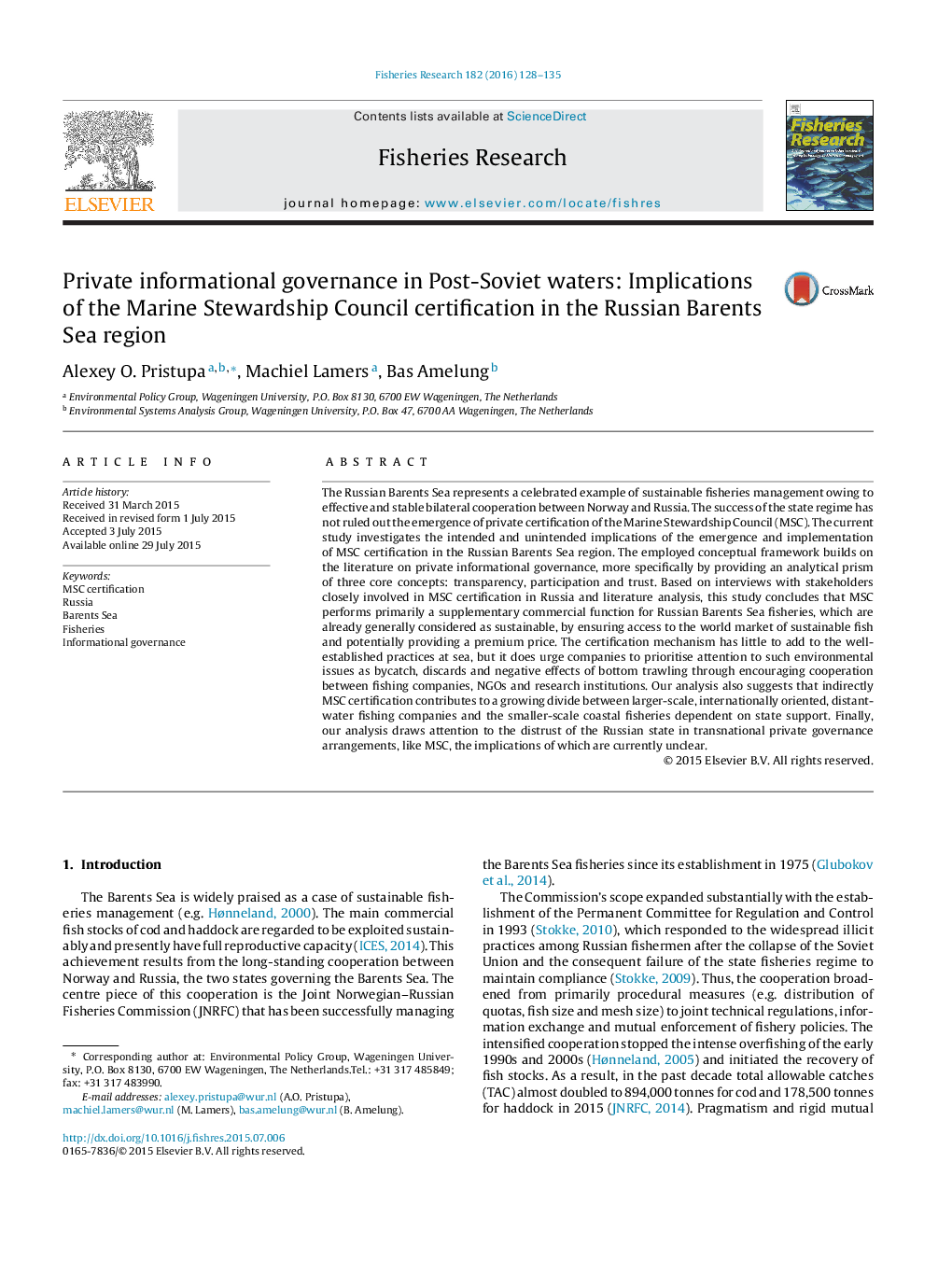| کد مقاله | کد نشریه | سال انتشار | مقاله انگلیسی | نسخه تمام متن |
|---|---|---|---|---|
| 4542674 | 1626787 | 2016 | 8 صفحه PDF | دانلود رایگان |
• The analysis of private governance mechanism, the MSC certification, in the Russian Barents Sea is conducted.
• MSC certification has little to add to the well-established state regulations.
• MSC certification in the Russian Barents Sea represents mainly a commercial case.
• MSC benefits export-oriented fisheries but fails to embrace local fisheries.
• MSC generates networks between companies, NGOs and research institutions but fails to overcome state authorities’ distrust.
The Russian Barents Sea represents a celebrated example of sustainable fisheries management owing to effective and stable bilateral cooperation between Norway and Russia. The success of the state regime has not ruled out the emergence of private certification of the Marine Stewardship Council (MSC). The current study investigates the intended and unintended implications of the emergence and implementation of MSC certification in the Russian Barents Sea region. The employed conceptual framework builds on the literature on private informational governance, more specifically by providing an analytical prism of three core concepts: transparency, participation and trust. Based on interviews with stakeholders closely involved in MSC certification in Russia and literature analysis, this study concludes that MSC performs primarily a supplementary commercial function for Russian Barents Sea fisheries, which are already generally considered as sustainable, by ensuring access to the world market of sustainable fish and potentially providing a premium price. The certification mechanism has little to add to the well-established practices at sea, but it does urge companies to prioritise attention to such environmental issues as bycatch, discards and negative effects of bottom trawling through encouraging cooperation between fishing companies, NGOs and research institutions. Our analysis also suggests that indirectly MSC certification contributes to a growing divide between larger-scale, internationally oriented, distant-water fishing companies and the smaller-scale coastal fisheries dependent on state support. Finally, our analysis draws attention to the distrust of the Russian state in transnational private governance arrangements, like MSC, the implications of which are currently unclear.
Journal: Fisheries Research - Volume 182, October 2016, Pages 128–135
